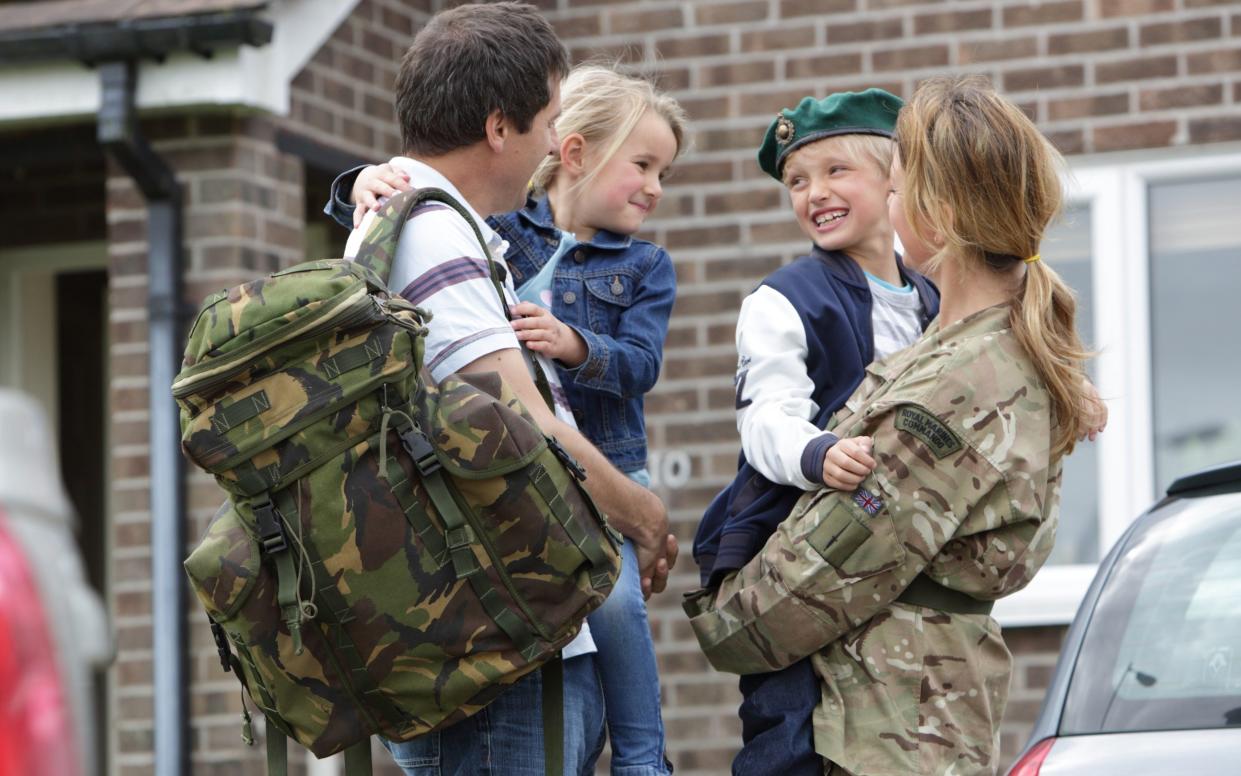Reeves told to raise private school allowance by 20pc for military to shield from VAT raid

Rachel Reeves is under pressure to raise the private school allowance for military families by 20pc, effectively exempting them from its tax raid.
The heads of the Independent Schools Council (ISC), which represents 1,400 members, and the Boarding Schools’ Association (BSA) accused the Government of “risking the security of our nation” unless it raised the Continuity of Education Allowance (CEA) from January.
Military parents who rely on CEA to help pay school fees have warned they would be forced to quit the Armed Forces unless they were exempt.
The Government has previously said it would “closely monitor” the impact of the VAT raid on military and diplomatic families but added any exemption would only be made after the next spending review. This is not expected to take place until next March, two months after the 20pc levy begins, meaning military families would be taxed from January.
But in a letter sent earlier this week, Julie Robinson, of the ISC, and David Walker, of the BSA, argued that by introducing the tax levy outside of the normal tax year, the Government could introduce an exemption outside of a spending review.
They wrote: “When the Government calls on members of our Armed Forces to serve, whether at home or abroad, they do not hesitate to answer that call.
“It is incumbent upon the Government to match this with similarly swift and decisive action to make sure that any uplift in their children’s school fees owing to VAT are covered from day one by the Ministry of Defence.
“Anything else would be a risk to the recruitment and retention of Armed Forces members and therefore, the security of our nation. Beyond that, it would be a dereliction of duty.”
They added the exemption would cost £11.4m, less than 1pc of the £1.5bn Labour hopes to raise from the policy.
Around 4,700 children from military and diplomatic families currently receive CEA which can cover up to 90pc of boarding school fees for children whose parents frequently work away.
Bridget Phillipson, the Education Secretary, had previously suggested that Armed Forces personnel could be exempt. In January, she said: “There are ways in which [the Armed forces] can be carefully drawn to ensure that exemptions apply.”

A leaked email sent in July by Ian Murray, the Scottish Secretary, to one of his constituents implied caveats could be made.
Increasing CEA by 20pc for pupils who receive the taxpayer-funded support may prove to be the simplest way to exempt military pupils rather than a more complex process where schools would have to claim back VAT for each of its military pupils and reimburse parents.
However, the decision may not be enough to stop military personnel from being priced out of private education. The CEA has been frozen for many years and is capped at £9,080 per term for secondary schools – almost £6,000 less than the average boarding school fee, according to the ISC. This means that, despite the financial aid, military parents in receipt of CEA often have to spend upwards of £17,000 per year to send their child to boarding school.
A Treasury spokesman told The Telegraph: “We provide CEA to eligible officials and service personnel, which is in recognition of the enormous sacrifices our military families make and the fact that they are often required to move base location.
“The allowance ensures that we can limit disruption to the education of serving personnel’s children.”


